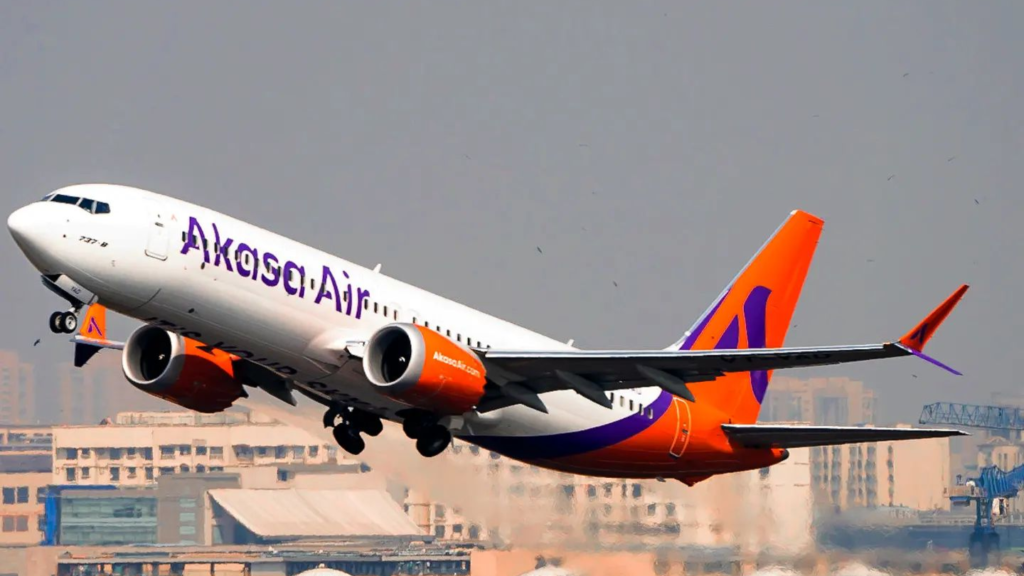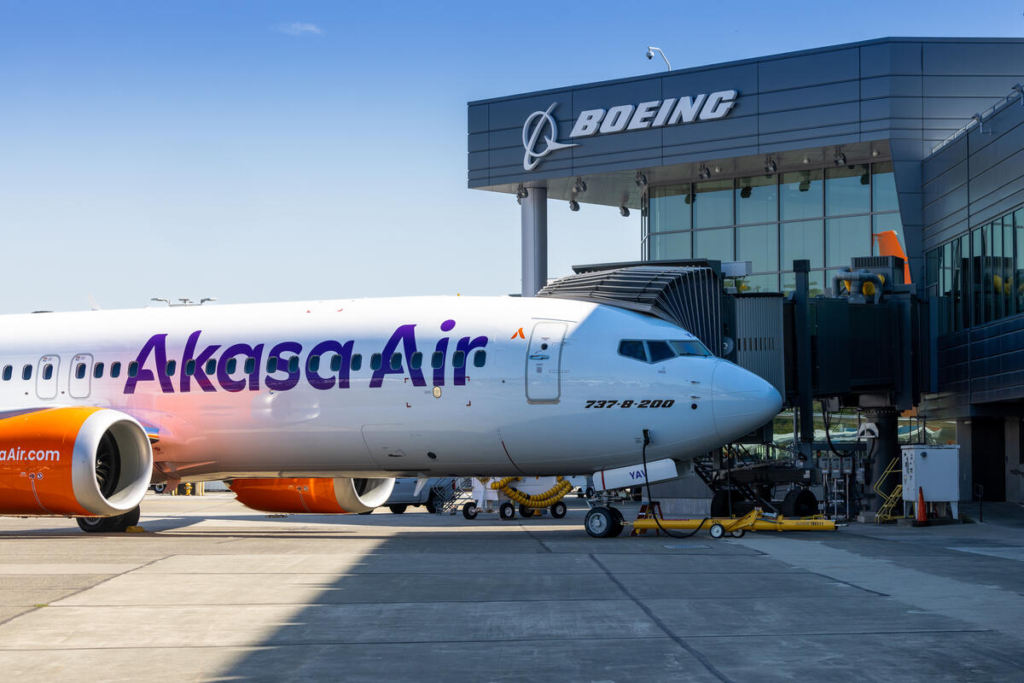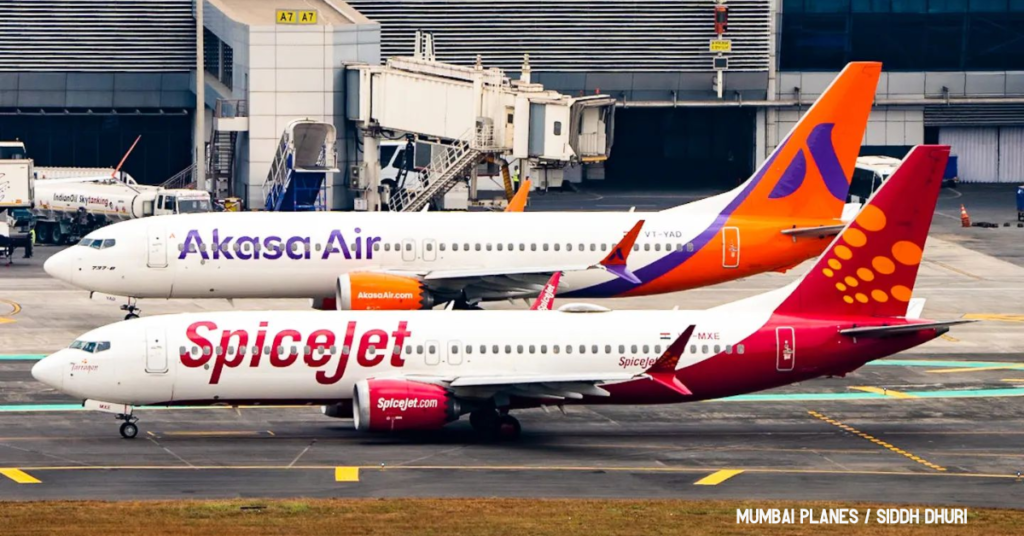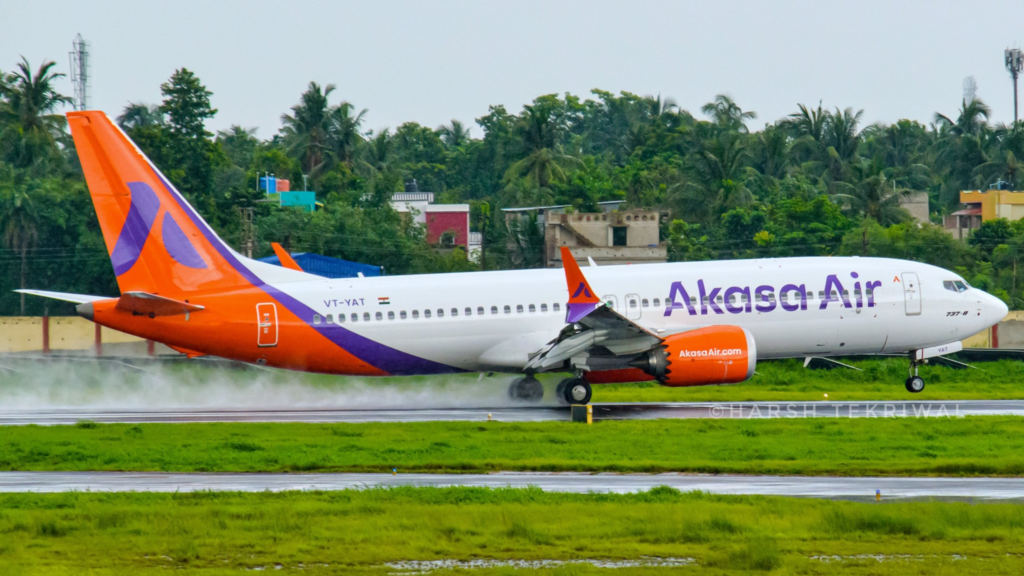MUMBAI- India’s youngest and greenest airline, Akasa Air (QP), is looking to secure approximately $300 million (around 2,500 Crore INR) in structured credit to support its expansion, according to two individuals familiar with the matter.
The airline has enlisted the services of Swiss bank UBS, which acquired Credit Suisse, including its Indian investment banking business, last year to assist in raising the funds. While initially considering equity, the airline opted for structured debt as its preferred financing strategy.

Akasa Air to Raise Funds
In a recent development, Akasa Air placed an order for 150 Boeing 737 Max aircraft, valued at around $20 billion, expanding its total planned aircraft acquisitions to 226.
The airline had previously initiated its aircraft procurement with an order for 72 Boeing 737 MAX aircraft in 2021, followed by an additional order for four Boeing 737 MAX 8 aircraft in June 2023.
Currently operating a fleet of 22 aircraft, Akasa Air anticipates the delivery of a total of 204 aircraft over the next eight years. This strategic approach ensures a consistent influx of aircraft to support the airline’s domestic and international expansion initiatives.
Despite posting an operating loss of Rs 602.84 crore in its inaugural year of operations (FY23), Akasa Air reported operating revenue of Rs 777.85 crore and operating expenses totalling approximately Rs 1,400 crore.

Fastest Growing Airline in the World
In response to a query from Moneycontrol, an Akasa Air spokesperson expressed confidence in the airline’s well-managed and financially robust operations, stating, “
Akasa Air is a well-run, professionally managed airline with strong finances and a solid growth plan. We are confident about our future and continue to invest prudently, with longer-term financial success in focus.”
Regarding domestic traffic, the spokesperson highlighted that the airline has been generating cash since its inception, ensuring the security of the initial investment made by investors, including the late Rakesh Jhunjhunwala, in its bank account.
Since its launch in August 2022, Akasa Air has successfully served over 6.3 million passengers, connecting 18 cities across India, including Mumbai, Ahmedabad, Bengaluru, Chennai, Kochi, New Delhi, Goa, and Hyderabad.

Tough Market
The domestic air traffic has witnessed a significant surge, with airlines accommodating 152 million passengers in 2023, surpassing the pre-Covid high of 144 million in 2019.
However, challenges persist for some domestic airlines, as exemplified by SpiceJet (SG), which reported a loss of Rs 449.4 crore in the September quarter, compared to a net loss of Rs 833.2 crore a year ago.
The airline’s total income declined by 18 per cent year-on-year to Rs 1,725.8 crore, and it faces ongoing legal battles with creditors and lessors.
In the face of these challenges, SpiceJet successfully secured Rs 744 crore in the initial instalment of its Rs 2,250 crore capital infusion plan last month, providing the airline with a much-needed financial boost.
Jet Airways is encountering obstacles on its path to revival, as the Supreme Court dismissed a plea from Jalan Kalrock Consortium (JKC), the winning bidder. The plea sought the court’s direction to lenders for the release of the existing bank guarantee of Rs 150 crore and its replacement with a new one.
Go First, owned by the Wadia group, is currently undergoing an insolvency resolution in the National Company Law Tribunal.
IndiGo, the largest airline in India, maintained its industry leadership in December, commanding a market share of 61.8 per cent. The Tata-owned Air India group held the second-largest market share, with Air India contributing 11.2 per cent, Vistara at 9.5 per cent, and AIX Connect at 6.2 per cent.
Stay tuned with us. Further, follow us on social media for the latest updates.
Join us on Telegram Group for the Latest Aviation Updates. Subsequently, follow us on Google News.

